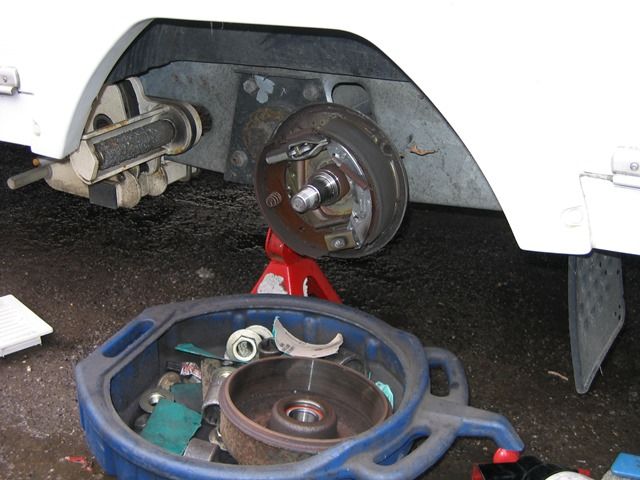Owner checks and maintenance
Throughout the year there are jobs to be done to keep your vehicle in good condition. What you can attempt depends on your level of expertise and tools, but most users can and should tackle the following check items, if not thesubsequent remedial work that may be revealed.
Check:
- Road lights and electrical connections between car and caravan
- Check your tyre pressures before every trip and periodically give them a general visual inspection - including the spare. It seems counter intuitive but the less a tyre is used the faster it ages, hence the Club strongly recommends you change tyres no later than seven years from the date of manufacture. See Data Sheet 15 for more information about tyres and tyre care
- Wheel rims for kerbing damage and corrosion, which can lead to deflation
- Wheel nut tightness (50 miles after servicing or wheel removal and before every trip). Keep a good torque wrench for this
- Greasing of the coupling head, if it does not have a stabiliser hitch
- Condition of breakaway cable and clip
- Battery charge state (use an inexpensive multi-meter) and charge with a leisure battery charger if necessary
- Visual condition of flexible gas hoses and regulator connections
- Flame colour from cooker and gas appliances. The flame should stay blue. If yellow flames appear, consult a workshop
- 12N, 12S (7-pin) or 13-pin connection cables, plugs and sockets for signs of wear or looseness. Clean contacts if necessary
- The RCD cut-out test switch works. Check this every time you connect to a hook-up point
- All water hoses and check tightness of connections
- Ventilation and gas drop-out vents to ensure they are not obscured by items carried in lockers
- The stabiliser friction pads wear indicator on the hitch if a stabiliser hitch head is fitted. If necessary replace according to the maker's instructions.

If any item stops working during the year, try to attend to it as soon as possible. At least check that further problems are not being caused, such as with a water leak. If it is an electrical item, check and replace the appropriate fuse, but if it blows again immediately then have the electrical system checked over professionally. If a gas leak develops (you should smell it) evacuate the caravan, switch off the valve at the gas cylinder, keep clear and seek help.
Expert jobs
It is strongly recommended you do not work on any of the following items unless you have the appropriate qualification. Use a qualified technician.
- Any gas equipment or connections to gas appliances
- Mains electrical supply
- Any work on chassis or brakes, other than minor adjustments not involving dismantling
- Damp checking - this needs good quality equipment and expert analysis. Simple DIY meters can be misleading
- Warranty work - doing this yourself may invalidate any claim
- Repairs to the exterior bodywork
- Floor delamination (spongy floor)
- Fitting items directly to the chassis (such as a motor mover or trailer control system)
- Removal and refitting of brake drum - this usually features a one-shot nut that cannot be reused and requires a torque wrench with a high working range to fit (see picture above).
If you undertake some of the more complex jobs, only try doing things that are within your ability and you have suitable instructions to follow. Never work under a caravan or motorhome supported only by a jack. Use proper axle stands if necessary and try to ensure someone else is nearby at all times if you are under the vehicle. Also note that for most modern caravans it is not permitted to drill the chassis.